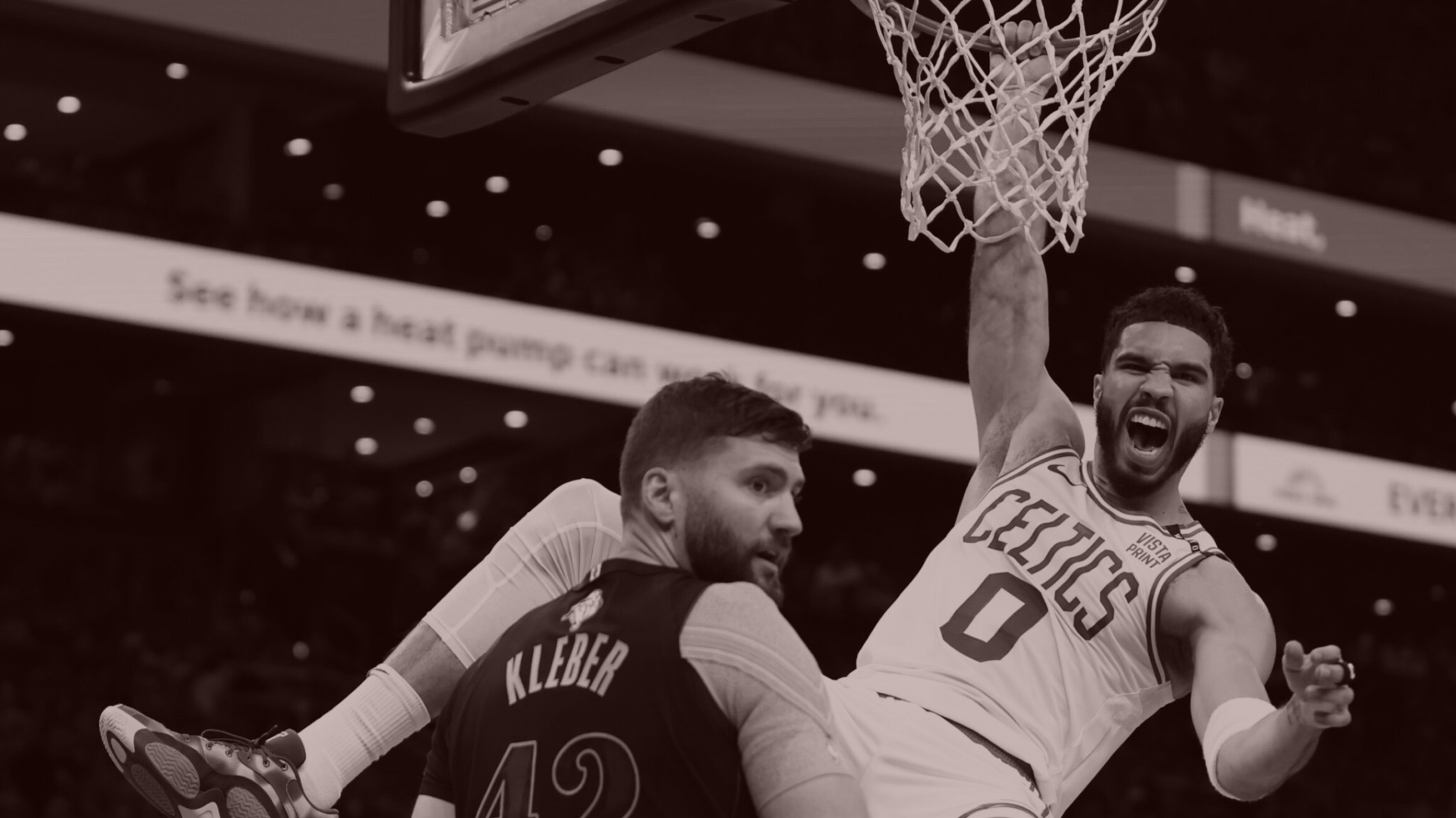Welcome back to In the Room. I’m Dylan Byers, writing to you from the verdant and always-relaxing San Juan Islands. The Dungeness is plentiful this year.
In tonight’s special issue, I’ve compiled a bevy of my partners’ remarkable work from this past week, including Matt Belloni’s latest breaking down David Zaslav’s post-Olympics nightmare, Lauren Sherman’s dispatch on Melinda French Gates’s sudden embrace of designer fashion, and Tara Palmeri’s viral scoop about a familiar face eyeing a return to Mar-a-Lago. Tonight’s entrée, however, is John Ourand’s inside reporting on Brian Roberts’ calculations now that Comcast has finally locked down those precious NBA rights.
Let’s get started…
🎧 NBC’s Olympics bonanza & Venu math: If you missed today’s episode of The Powers That Be, John joined Peter Hamby to offer his definitive pre-postmortem on the possibly overstated Olympics boon for Peacock and NBC, before turning to the latest chatter surrounding the WBD/Fox/Disney Venu streamer, and whether it will actually be worth the not-meager $42.99 monthly cost. [Listen here]
📺 The cable-pocalypse: On Monday, David Zaslav hopped on the P.J. back to New York after a whirlwind Olympics getaway—during which he hosted a private, after-hours party at the Louvre; crashed the Comcast party during the Opening Ceremony; and his colleagues racked up an eight-figure T&E bill—to admit to Wall Street, on Wednesday, that his television networks are worth about $9 billion less than he thought. “That’s on top of the 6.2 percent drop this quarter in overall revenue at the company,” Matt noted last night. “Ouch.”
The public reveal “was basically an admission that Zaslav, John Malone, and the other investors had vastly overpaid for the company in 2022,” Matt continued. WBD’s stock price is now barely $7, down about 70 percent from when the WarnerMedia-Discovery merger was consummated in April 2022. Perhaps understandably, there’s chatter in various Hollywood circles about whether Zaz will keep his job, but Matt figures it’s wishful thinking: “Malone doesn’t really have a history of terminating his top executives in hard times. Rather, he tends to overpay them for middling performance.” (WBD board members paid Zaslav $50 million last year.)
Of course, while the circumstances at WBD indeed seem dire, its global entertainment peers are countenancing similar, albeit slightly less dramatic, headwinds. Disney, for example, recently announced that it reached profitability in streaming ahead of schedule—but the stock still dropped this week “because of weakness at the parks and those troubling TV assets.” And just as Shari Redstone prepares to toss David Ellison the keys to the Paramount kingdom, the company “revealed its own massive TV write-down of $6 billion, even as its streaming business became profitable for the first time.”
By all accounts, it seems that we’re finally entering the stage in the decline of linear television that analysts, media insiders, and all of us at Puck have been shouting about for years. Matt, with characteristic lucidity, put it this way: “The entire media sector now seems to be entering a new, more sinister stage of the Cable-pocalypse, where investors just don’t believe things are gonna get better.” [Read the full story here]
🪡 This week, while thumbing through Instagram, Lauren spotted a post from Melinda French Gates in which the 59-year-old Seattle mom and philanthropist, worth some $13 billion, was wearing a surprisingly fashionable piece of clothing: the Courrèges turtleneck, “the slight, ribbed one with the little embroidered monogram that sits right at the center of the clavicle.” Sure, Courrèges is owned by the Pinault family office, Groupe Artémis, but it is nonetheless a small brand, and not one you would expect to find in the closet of the .0001 percent.
As it turns out, Gates’ glow-up isn’t happening in a vacuum. There’s Mark Zuckerberg, with his surfer tan and gold chains, who has apparently “traded his Alternative Apparel hoodies for Brunello Cucinelli and Loro Piana.” And then there’s Jeff Bezos, “who upgraded his physique and printed jacket collection as fast as you can say ‘Lauren Sànchez.’” Even Elon Musk, with his “hair plugs and Wegovy bod,” and Zaz, with his neckerchiefs and determination to wear Brunello, are upgrading their wardrobes.
According to Lauren, this is all “part of a collective glow-up taking place in our broader culture. A decade ago, looking schlubby was considered noble… [but] this generation of nouveau riche is finally accepting that looking good can help you gain a different kind of respect.” [Read the full story here]
🐊 Meanwhile, down in Mar-a-Lago, Tara reports that Trump has been fuming over Kamala Harris’s historic fundraising numbers ($310 million in July, and another $36 million in the 24 hours after Tim Walz was announced as her V.P.) and the fact that “the campaign hasn’t been able to land any blows on his more youthful political foil.” As a result, Trump is now “keen on bringing back one of his perennial emotional support aides, Kellyanne Conway,” as an extension of campaign manager Susie Wiles.
Naturally, because this is Trumpworld, there’s already plenty of bad blood circulating. “The president wants to bring her on and some people are upset about it,” said one Trump advisor. To wit: During the veepstakes, Kellyanne was a vocal proponent of Marco Rubio, and she’s had to place a call to J.D. Vance to clear the air. There’s other baggage, too. “Kellyanne player haters would point to the fact that she recently registered as a foreign agent for a Ukrainian oligarch, who pays her $50,000 a month to build U.S. support for Ukraine,” Tara wrote.
In any case, the appointment would make sense. “In this newly minted, post-Biden race, Trump seems to be reaching for a familiar face,” Tara reasoned, “one that helped him defeat another formidable female opponent eight years ago.” [Read the full story here]
Now, here’s John’s report on Brian Roberts’ NBA calculations…
 |
| NBC Prepares for Those NBA Economics |
| Comcast executives are thrilled about the value that the NBA can offer NBC’s primetime lineup and Peacock’s growth and retention rates. But making the deal profitable will require some strategery at the affiliate and distributor level—and the fun is about to begin. |
Loyal readers will even recall how I broke the news that part of Comcast’s NBA deal thesis involved their ability to eventually punish WBD in future negotiations by lowering the carriage fees for TNT. WBD’s Turner networks contracts with Comcast are up at the end of next year. With the NBA, TNT currently costs Comcast around $3 per subscriber, per month. Without the NBA, Comcast will push to pay a much lower fee. As the analyst Michael Nathanson told me earlier this week: “Sure, TNT has March Madness and baseball playoffs, but it’s really repeat TV. Why is TNT $3 per month when USA is 50 cents or AMC is $1?”
NBC also faces end-of-year negotiations with Nexstar and Sinclair, two big local broadcast groups that own a significant number of local NBC stations. These negotiations will go a long way in determining just how much financial support the local broadcast groups will give to NBC, which has not tipped its negotiating hand yet. I’m told that executives will begin to focus on these deals after the Olympics conclude this weekend and everyone gets back from Paris. (Inside Comcast, everyone is rolling their eyes about the T&Es.)
This waiting game hasn’t stopped local broadcasters from girding for what they know will be a tough negotiating process given the network’s game load. NBC will carry regular season games on Sundays and a doubleheader on Tuesday nights. (Peacock will have exclusive access to stream a Monday night doubleheader.) My sources say they’ve heard rumblings about NBC trying to extract an incremental payment for the NBA. But several local broadcast executives believe that NBC will wait until its affiliate deals are up, rather than trying to work out a surcharge.
Local broadcast executives are particularly annoyed about the Peacock element of Comcast’s NBA deal. They know that Comcast executives so vastly outbid their competitors because they wanted to use the NBA to grow the streamer, and these executives don’t love the notion that the cost will likely be passed on to them. And while local stations do get some compensation from people who subscribe to Peacock within their markets, there is an overwhelming sense that any push to a streaming service will hasten the decline of their businesses. As a way to compensate, local broadcast groups will almost certainly try to extract more local advertising time from the NBA games.
Notably, NBC can’t just press down on its partners to ensure it is profitable on its $2.5 billion economics. After all, affiliates pay NBC on a per-subscriber basis. And as cord-cutting continues to ravage the business, the number of subscribers keeps declining. So the network can’t put so much pressure on these partners to the point where the price tag flips a consumer to cut the cord. It’s going to be a delicate balance of grinfucking, applying pressure to relieve their own financial pressure, while ensuring that the equilibrium does not break. “For NBC to continue to keep the revenue that they have today from their station groups, they will have to make sure that their annual increases match that of the cord-cutting losses,” one industry executive told me. “And that’s just break-even. And that’s before the NBA.”
In the end, of course, Comcast made this deal with a longitudinal view. Like every other large-cap legacy mediaco, they are trying to manage the decline of cable in tandem with the growth of streaming, and balance the intricacies of a subscriber business and a commercial advertising operation. Not every current media company will be intact when the NBA comes back up for auction in the next decade, but this one will be, even if a few eggs are cracked along the way.





